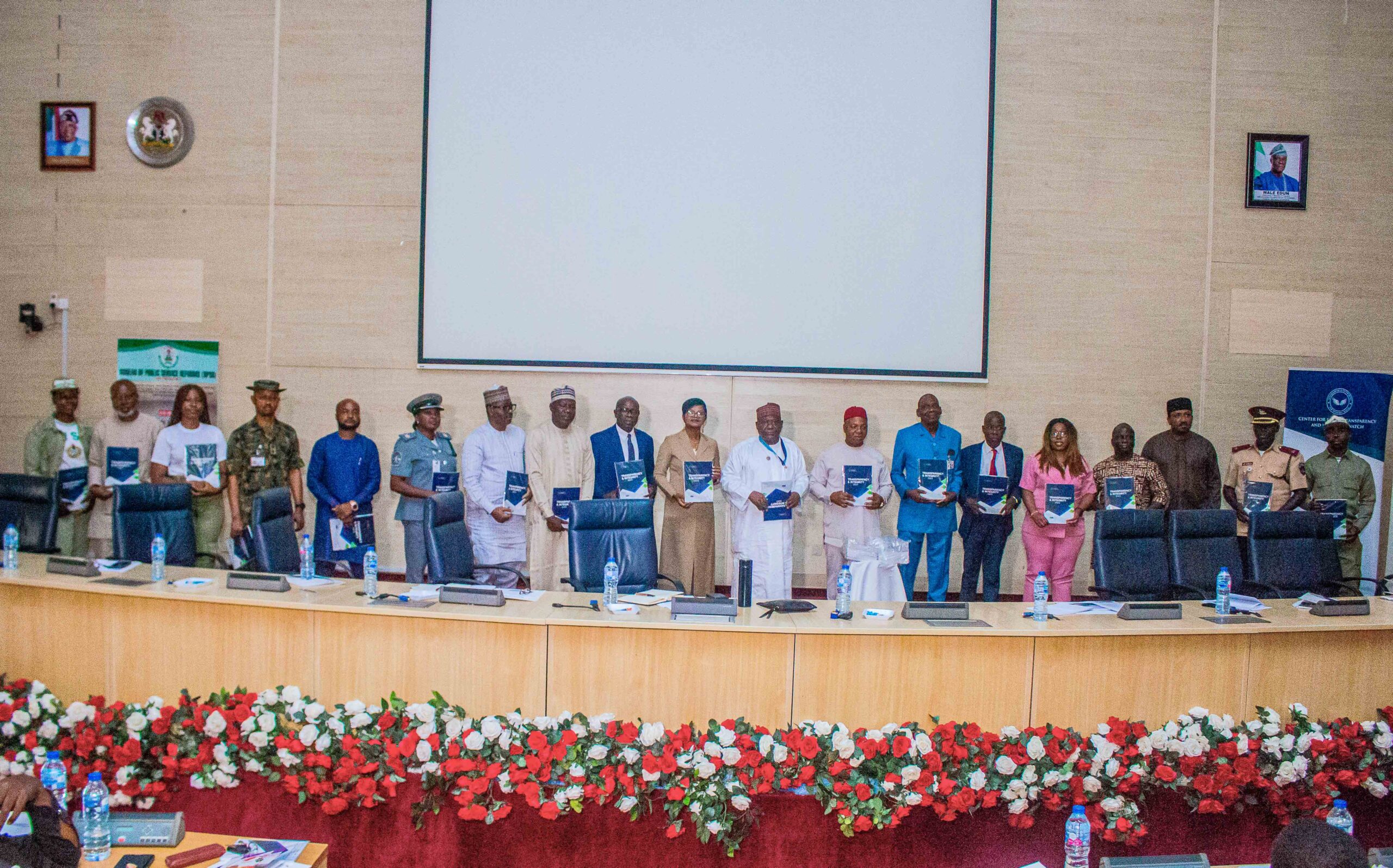Development Bank of Nigeria with 73.2% score (up from 58.7% in 2022), has again emerged the highest-ranked organization in the just released Transparency and Integrity Index (TII) report by the Center for Fiscal Transparency and Integrity Watch.
Assessment of state government also indicated that Ekiti emerged top with Kaduna and Ondo states coming second and third, scoring 61.3%, 59.7% and 53.7% respectively. Out of the 774 local government areas assessed, only seven had functional websites with all scoring 31.25%.

These were the outcomes of the presentation of the 2023 TII by Umar Yakubu, the Executive Director of the Center; who stated that the selection of the variables for assessment follows a conscientious review of international instruments and conventions, and other local laws, policies that guide the activities of public institutions in Nigeria.

Yakubu noted that the required information on public institutions, states and local government areas’ websites revolves around fiscal transparency, budget implementation, open procurement and contracting, website integrity, and citizens engagement which are the six variables the Index assessed.
Speaking at the unveiling of the Index, the Center’s Board of Trustees Chairman, Amb. Angela Nworgu said that the Index was developed in 2021 as part of the activities to mark the United Nations Universal Access to Information which is celebrated every 28th of September; and has since become an annual assessment that measures public institutions’ compliance with national laws and international conventions that promote transparency, accountability and minimize corruption.

She further noted that Index was conceived to also build a well-informed citizenry that holds the government accountable at all levels of governance; adding that the year’s assessment was extended to cover “not just the federal and state governments but also assessing, independently, the various local governments across the country.
“This is given the critical role they play in delivering services and governance to our citizens and a clear reflection of our commitment to ensuring that transparency and integrity permeate every level of government, from the national to the grassroots,” she said.
While enjoining stakeholders to engage with the report, she stated that the Center is committed to improving the assessment and mainstreaming the Index as tool for measuring public sector compliance with laws on open governance, transparency and accountability in the continent at large.
SGF Says Transparency is not Just a Legal Obligation, but a Moral Imperative
Delivering the keynote address at the presentation of the TII, the Secretary to the Government of the Federation (SGF), Sen. George Akume, said that entrenching transparency and accountability in governance is not only a legal obligation, but a moral imperative that should be upheld by every civil and public servant.
Speaking on the theme: ‘Proactive Disclosure, Access to Information and Fight Against Corruption in Nigeria,’ Sen. Akume who was represented by the Permanent Secretary, General Services Office, Dr. Maurice Nnamdi Mbaeri said that transparency is a powerful tool that strengthens the social contract between governments and citizens, noting that “it is our collective responsibility to ensure that it is upheld.”

Sen. Akume further stated that proactive disclosure of information as enshrined in the Freedom of Information Act (FOIA) seeks to enable public institutions to adopt a proactive stance in disclosing information to the public. He added that access to information is a powerful tool that empowers citizens to request and access government-held information which is essential to build trust and reinforce good governance.
“By providing information proactively, government agencies can ensure that decisions are made based on the most up-to-date and accurate data, leading to more informed and effective policies,” Sen. Akume noted.
In his remarks, the Director General, Bureau of Public Service Reforms, Mr. Dasuki Arabi said that transparency is a catalyst for good governance and driving force with a potential to foster an environment of openness, accountability as well as engenders responsive governance.

Arabi pointed out that transparency and accountability measures are necessary to ensure that resources are well managed for the good of all citizens, adding that “transparency and Integrity Index Assessment seeks to encourage a peer review mechanism that promotes competitiveness for better performances and as well ensure the compliance to critical indices required for national development by MDAs.”
Professor Abdullahi Shehu Says Transparency Inspires Innovation
In his perspective, Prof. Abdullahi Shehu, OON said that transparency is vital for organizational growth as it can inspire innovation and improved performance. He noted that when there is openness, clarity and sincerity, which are important ingredients of transparency, accountable leadership will be birthed.

He urged public institutions to seek ways to promote transparency, including promoting team work, prompt and proactive communication, and partnership with civil society organizations (CSOs) and media.

